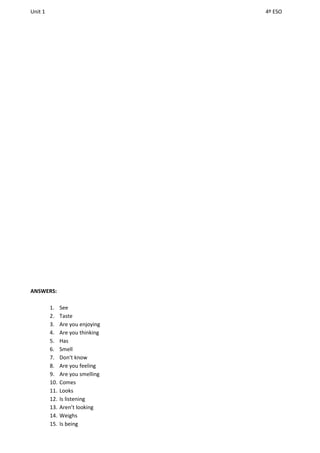The document summarizes the differences between stative verbs and action verbs. It provides examples of common stative verbs like see, hear, feel, taste, think, believe, and be. While these verbs usually don't have continuous forms, some stative verbs can have continuous forms but with a difference in meaning compared to the simple form. It then provides a chart contrasting the simple and continuous forms of example stative verbs and their differences in implied meaning. Following this is a short quiz checking understanding of when certain verbs take simple or continuous forms.

